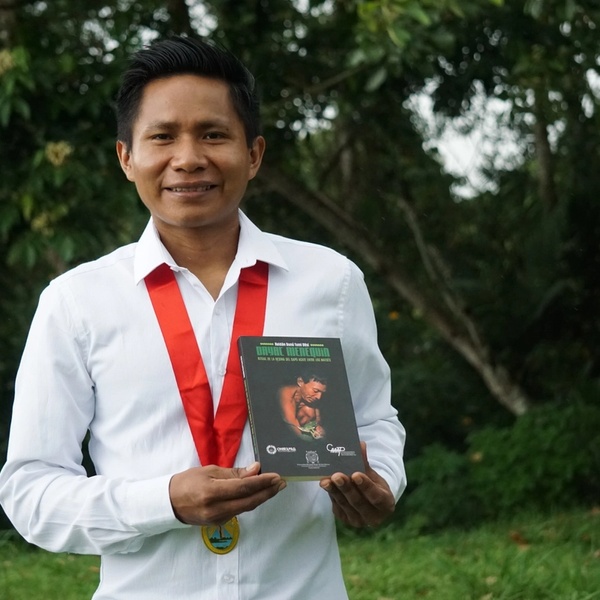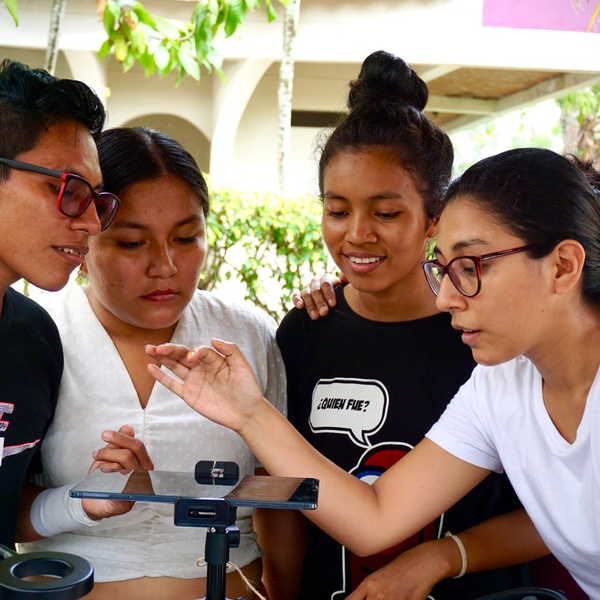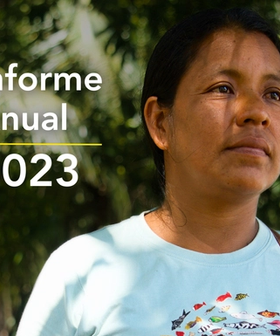We believe in intercultural education as a means of creating an inclusive, diverse and equitable society that honors and celebrates its constituent cultures and identities.
Intercultural Education for the future leaders of the Amazon
The Intercultural Education Program of the Chaikuni Institute, Sui Sui, works closely and primarily with the Organization of Indigenous Students from the Peruvian Amazon (OEPIAP), with the main objective to contribute to improved access to higher education and sound basic living conditions for the Indigenous students in the city of Iquitos. We believe the key to change is equipping Indigenous youth with the cross-cultural tools, language and skills to engage with mainstream society on equal terms.
Indigenous youth are the future leaders of the Amazon. We are dedicated to supporting them as they navigate academic, economic, and social challenges on their path to leadership.
SUPPORT THEM HERE
Only 3.25% of the Indigenous population in Peru’s Loreto region complete higher education. Your support is key to build an inclusive, equitable society that honors and integrates Indigenous rights and perspectives.

“When I started university I had many issues with the Spanish language, I couldn’t understand what my teachers taught me but with time I started learning little by little. I was one of the students who participated in the academic tutoring classes, I took the writing lessons and thanks to them I was able to improve. This got me thinking that we can't let obstacles get in our way. We have to overcome them”
Our Intercultural Education program (Sui Sui) is based on five main lines of work: improvement of living and study conditions of indigenous students in Iquitos, strengthening OEPIAP's organizational and advocacy capacities, academic tutoring and personal development, advocacy and network building with government bodies, civil society and educational institutions with regards to intercultural education and indigenous peoples and, finally, raising awareness (through communications) on the challenges for indigenous students.
As a result of our work
Indigenous students have strengthened their capacity to raise their voices to speak about the issues that affect them. They’ve created music, written and planned the “Ser indígena” documentary, and produced and starred in their own short films. Additionally, in the last two years, almost twice as many students have passed all of their courses at the National University of the Amazon and student dropouts have been reduced by almost 70%.
We are currently working on a intercultural training program that we call “Promoters of Good Living”. Through exchanges, debates, cultural activities and practices, the indigenous students are developing their potential to lead positive changes in their communities. The aim of this project is that they combine and integrate their experience from the urban-academic world with the traditional knowledge of their cultures.

Click to:
About Interculturality
We believe indigenous higher education students are the couriers of a mutually advantageous cultural exchange.
The presence of indigenous students, with the traditional knowledge they bring, enriches the perspectives of their peers, professors and co-workers within the urbanized and disconnected university setting. Academic opportunities allow for indigenous students to return home with knowledge and skills from which their communities can learn and integrate, or pursue a professional career in the city.

"Interculturality means when two cultures come together without one being seen as superior to the other. Instead, they have the same lever of power, so that we can live in harmony. It means that knowledge from both cultures is considered equally important in all the spaces they share."
The Challenge
Even though education ought to be the responsibility of the State, and despite some efforts made in recent years, Indigenous youngsters who want to pursue higher education in Peru still suffer vastly unequal opportunities for a number of reasons:
- Indigenous youth who leave their homes to study in the city are poorly prepared by their local basic and secondary schools. Lack of resources and the difficulties associated with making such a dramatic cultural transition make it hard to catch up academically.
- The indigenous students who do make it to the city for university are often met with hostility and discrimination due to widespread racism and ignorance regarding indigenous history and colonialism.
- A lack of political will and a poor political vision for intercultural education largely means that if indigenous youth are to pursue higher education, they must do so on their own, against all odds.
- High costs and other difficulties associated with travelling to and living in the city for education make such an endeavour impossible for many.
- The jarring cultural transition and social isolation are unappeased by a national scholarship program that fails to properly integrate indigenous students.
- Few higher education institutions pursue a policy aimed at improving access for indigenous youth or providing helpful and necessary resources.
- With the exception of the Programa de Formación de Maestros Bilingües Interculturales (FORMABIAP) of AIDESEP, there is an inadequate infrastructure for bilingual or intercultural higher education to accommodate the language barriers experienced by many Indigenous students.





